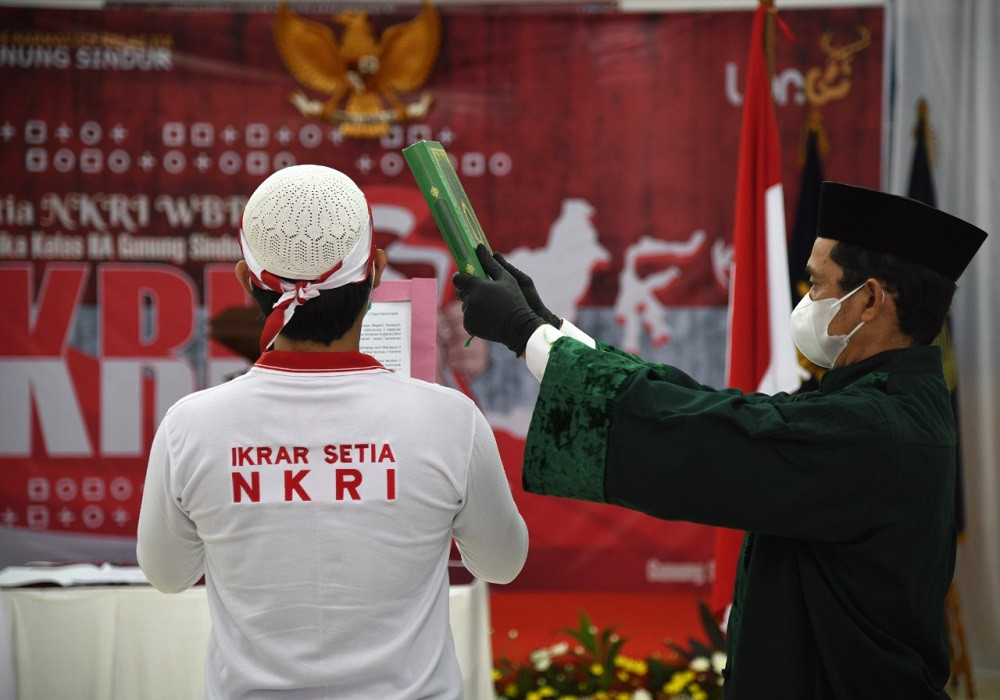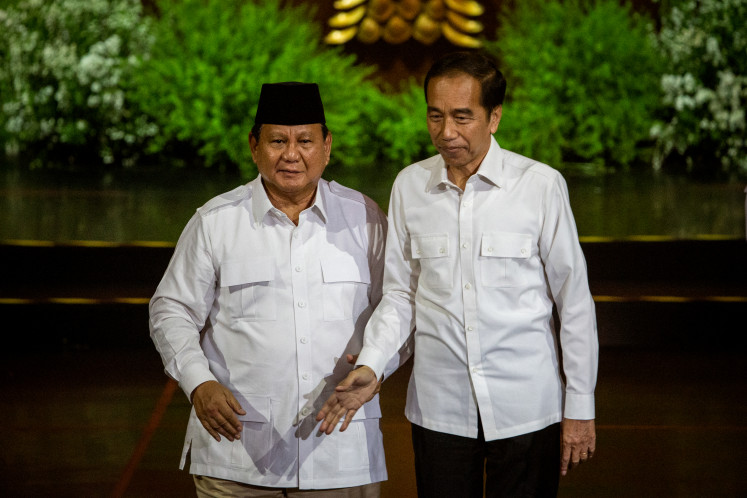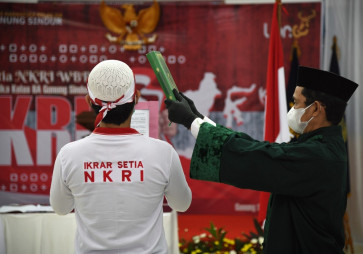Popular Reads
Top Results
Can't find what you're looking for?
View all search resultsPopular Reads
Top Results
Can't find what you're looking for?
View all search resultsIndonesia's failure to deradicalize: Where to put our regret
Efforts to detect terrorist plots and actions are crucial. However, countering terrorism must also take into account the other side of the equation: improving societal immunity to terrorism.
Change text size
Gift Premium Articles
to Anyone
 Loyalty oath: A terrorist convict pledges allegiance to the state upon completing a deradicalizaton program at Gunung Sindur prison in the West Java regency of Bogor on Thursday. As many as 34 terrorist convicts have completed the program. (Antara/Law and Human Rights Ministry public relations bureau)
Loyalty oath: A terrorist convict pledges allegiance to the state upon completing a deradicalizaton program at Gunung Sindur prison in the West Java regency of Bogor on Thursday. As many as 34 terrorist convicts have completed the program. (Antara/Law and Human Rights Ministry public relations bureau)
T
errorism is an issue of identity with multifaceted causes ranging from economic, cultural, psychological and political factors. The roots of terrorism are often intertwined and interact with each other.
By using the propositions offered by the Club de Madrid research (2005), this empirical article will examine the factors causing the increase in Indonesia's terrorism index in 2017-2018. I argue that economic reasons play a trivial role in an individual’s decision to join a terrorist group. Instead, their decision-making is predominantly influenced by psychological factors; and there is a significant mismatch between what caused the increase in terrorism index in 2018 and what the Indonesian government had strategized for its soft counterterrorism measures – it neglects psychological analysis, which was the very factor affecting the terrorists’ participation.
Efforts to detect terrorist plots and actions are crucial. However, countering terrorism must also take into account the other side of the equation: improving societal immunity to terrorism. In other words, observing and preventing radicalization that occurs at the individual and communal levels must also be prioritized.
Club de Madrid, through its analysis of economic factors, has two main sub-propositions: the effect of incentives on the willingness of terrorists and rapid economic changes.
According to Club de Madrid's findings, members of a terrorist group may decide to join a terrorist group after considering the economic incentives they will receive. This proposition is indeed applicable to the case of Indonesia. In Fitriani et al.’s research in 2018, it was found that the majority of respondents decided to join a terrorist group because they were given incentives in the form of cash by the group’s senior members.
The second sub-proposition of Club de Madrid's economic factors is rapid economic change. Club de Madrid states that community groups trapped in a society with rapid economic change have a high tendency to engage in acts of terrorism.
This sub-proposition is not applicable in the case of Indonesia in 2017-2018. There was no rapid change in Indonesia’s gross domestic product growth, inflation rate and household spending. Indonesia’s economy indeed grew from 5.2 percent in 2017 to 5.3 percent in 2018. However, this increase cannot be categorized as “rapid or a sudden shock”. These changes are relatively trivial compared to fluctuations in GDP growth in the era of the global financial crisis in 2008, for example.


















